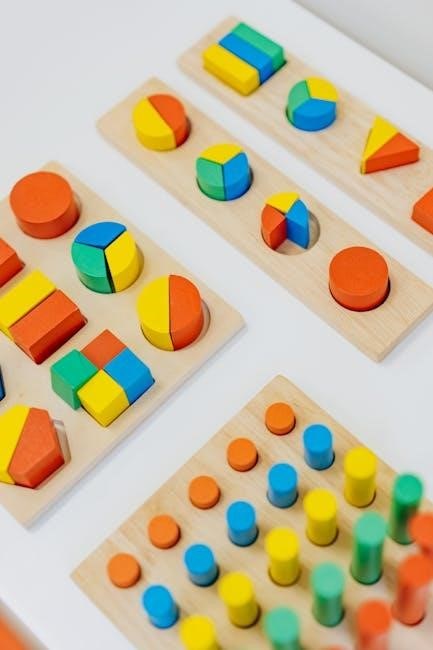
A kindergarten readiness checklist helps parents and educators assess a child’s preparedness for school. It covers essential skills like social, emotional, and cognitive development, ensuring a smooth transition.
Understanding the Importance of Kindergarten Readiness
Kindergarten readiness is a critical milestone that sets the foundation for a child’s academic and social success. It ensures children are developmentally prepared to thrive in a structured learning environment. By assessing skills like independence, emotional stability, and basic cognitive abilities, parents and educators can identify areas needing support. Early identification of gaps helps address them before formal schooling begins, fostering confidence and curiosity. A well-prepared child is more likely to adapt smoothly to classroom routines, build positive relationships with peers, and engage actively in learning. This readiness also promotes long-term academic success and social emotional growth, making it a cornerstone of early childhood development. Tools like the 2023 Kindergarten Readiness Checklist provide a structured approach to evaluating and enhancing these foundational skills.
How to Use the 2023 Kindergarten Readiness Checklist
The 2023 Kindergarten Readiness Checklist is a valuable tool designed to help parents and educators assess a child’s preparedness for kindergarten. It covers key areas such as social skills, emotional development, and academic readiness. To use the checklist effectively, start by reviewing each category and evaluating your child’s abilities. Identify strengths and areas that may need additional support. Track progress over time to monitor growth and development. The checklist is not a test but a guide to ensure your child is well-prepared for the transition. Share the results with teachers to create a personalized plan for success. By focusing on the skills outlined, you can help your child build confidence and readiness for their first year of school.
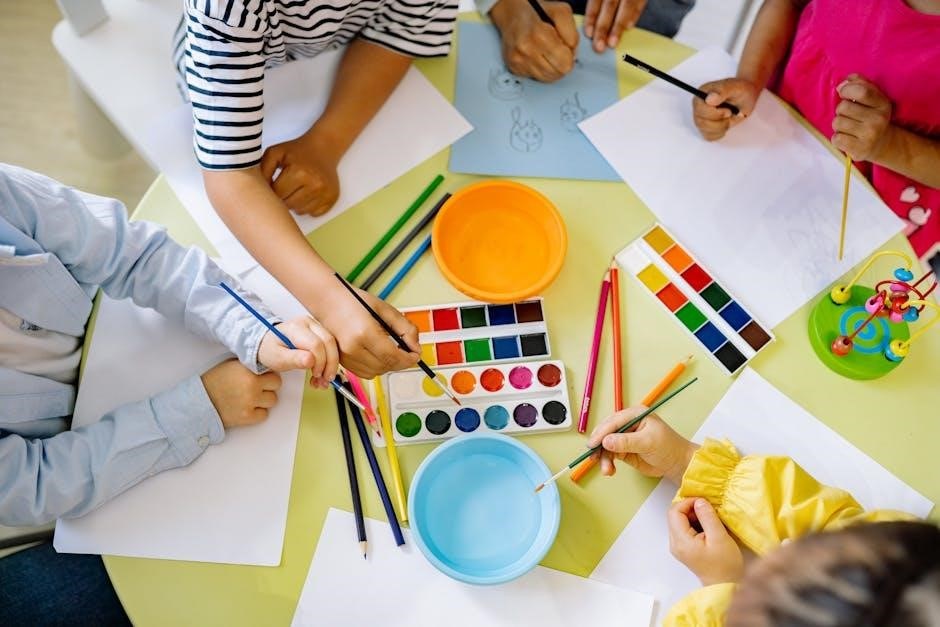
Emotional and Social Development
Emotional and social development includes skills like independence, sharing, and cooperation. Children should express emotions, show empathy, and interact confidently with peers and adults for kindergarten success.
Separation Anxiety and Independence
Children entering kindergarten should demonstrate growing independence and manage separation anxiety. They may feel nervous about being apart from parents but should gradually adjust to the classroom environment. Encourage your child to dress themselves, use the bathroom independently, and complete simple tasks without assistance. Practice short separations, like staying with a trusted relative or friend, to build confidence. Establishing a consistent goodbye routine can also help ease anxiety. Talk positively about school and reassure your child it’s okay to feel sad but they will have fun learning and making friends; Avoid prolonged goodbyes, as this can worsen anxiety. Encourage independence by letting your child make small choices, like selecting clothes or snacks, to foster self-reliance. Be patient and celebrate small steps toward independence, as this foundation is crucial for kindergarten success.
Sharing and Cooperation with Peers
Kindergarten readiness includes the ability to share and cooperate with others. Encourage your child to take turns, use phrases like “please” and “thank you,” and respect others’ belongings. Teach them to listen to peers’ ideas and work together in small groups. Modeling cooperative behavior at home, such as sharing toys or completing tasks together, helps develop these skills. Role-playing activities can also help your child practice resolving conflicts peacefully. Foster empathy by discussing how others feel when they share or cooperate. Positive reinforcement, like praising kind actions, reinforces good behavior. Exposure to group activities, such as puzzles or games, further enhances teamwork. By fostering a willingness to collaborate, your child will build strong social foundations for kindergarten and beyond. Consistent practice and encouragement will help them navigate interactions confidently.
Expressing Emotions and Empathy
Kindergarten readiness includes the ability to express emotions and show empathy. Encourage your child to identify and communicate their feelings using simple words like “happy,” “sad,” or “angry.” Teach them to recognize these emotions in others and respond appropriately. Role-playing can help them practice empathetic responses, such as comforting a friend who is upset. Discussing stories or situations where characters express emotions can also foster understanding. Encourage your child to share their feelings and validate their experiences. Modeling empathetic behavior, like kindness and concern for others, helps them develop emotional intelligence. Teach them to use phrases like “I feel…” to articulate their emotions clearly. Practicing calm and respectful communication will prepare them to navigate social interactions in kindergarten. By fostering emotional awareness and empathy, your child will build strong relationships and a positive classroom environment. This skill is essential for their social and emotional growth.
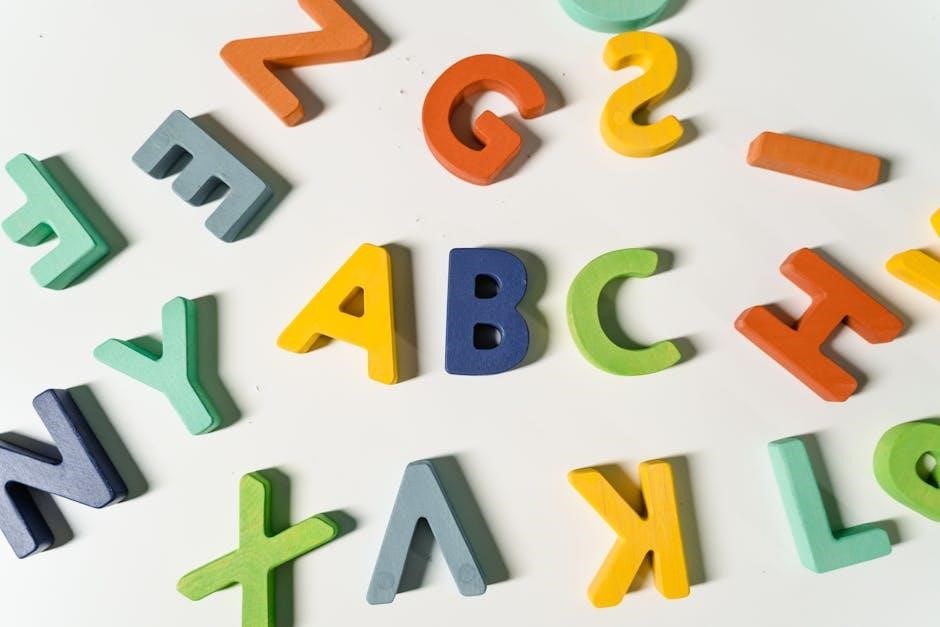
Cognitive Skills
Cognitive skills for kindergarten readiness include memory, matching, sorting, and problem-solving. Encourage tasks like matching objects and sorting by shape or color to enhance critical thinking and logical reasoning abilities.
Problem-Solving Abilities
Developing problem-solving skills is essential for kindergarten readiness. Encourage your child to think critically by engaging in activities like matching objects, sorting games, and simple puzzles. These tasks help improve logical reasoning and decision-making.
- Encourage your child to approach problems step-by-step and explore solutions independently.
- Provide opportunities for pretend play, which fosters creativity and critical thinking.
- Teach your child to identify patterns and predict outcomes, such as “What comes next in this sequence?”
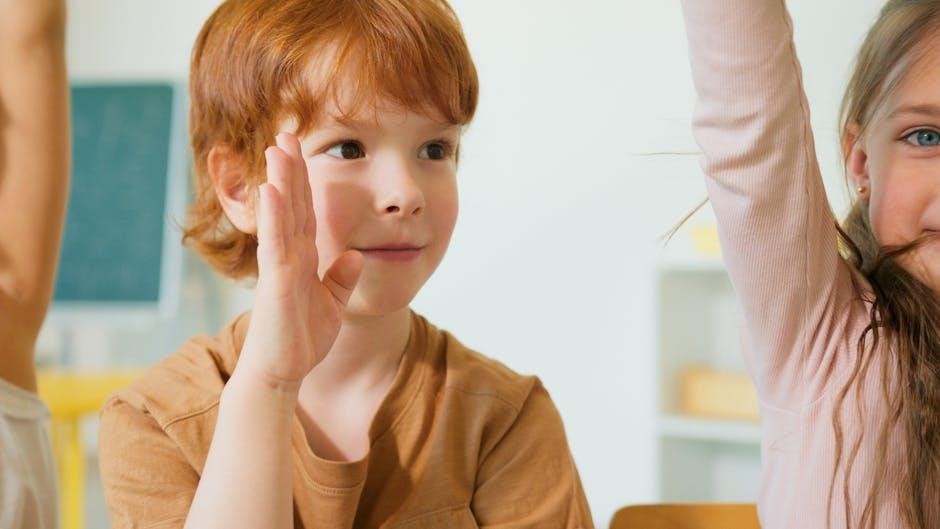
By nurturing these skills, your child will build confidence in tackling challenges and develop a strong foundation for academic success.
Recognizing Shapes and Colors
Recognizing basic shapes and colors is a fundamental skill for kindergarten readiness. Ensure your child can identify common shapes like circles, squares, triangles, and rectangles. They should also know primary colors such as red, blue, and yellow, as well as secondary colors like green, orange, and purple.
- Encourage your child to point out shapes in their environment, such as circles in a clock or squares in a windowpane.
- Use flashcards or puzzles to help them associate shapes and colors with their names.
- Engage in activities like coloring or sorting games to reinforce color recognition and shape identification.
These skills lay the groundwork for understanding more complex concepts in math and art. Make learning fun by incorporating these activities into daily routines!
Understanding Numbers and Basic Counting
Before kindergarten, your child should demonstrate an understanding of numbers and basic counting skills. They should be able to recognize numbers 1-20 and understand that numbers represent quantities. Practice counting objects together, ensuring they can count accurately up to 20 or higher. Encourage them to identify numbers in their environment, such as on signs, toys, or number cards.
- Engage in activities like reading counting books or singing number songs to make learning fun.
- Use number lines or visual aids to help them see the sequence of numbers.
- Encourage counting games, such as counting steps while walking or toys during playtime.
This foundational skill supports math development and problem-solving abilities. Make it interactive and enjoyable to build their confidence and readiness for kindergarten!
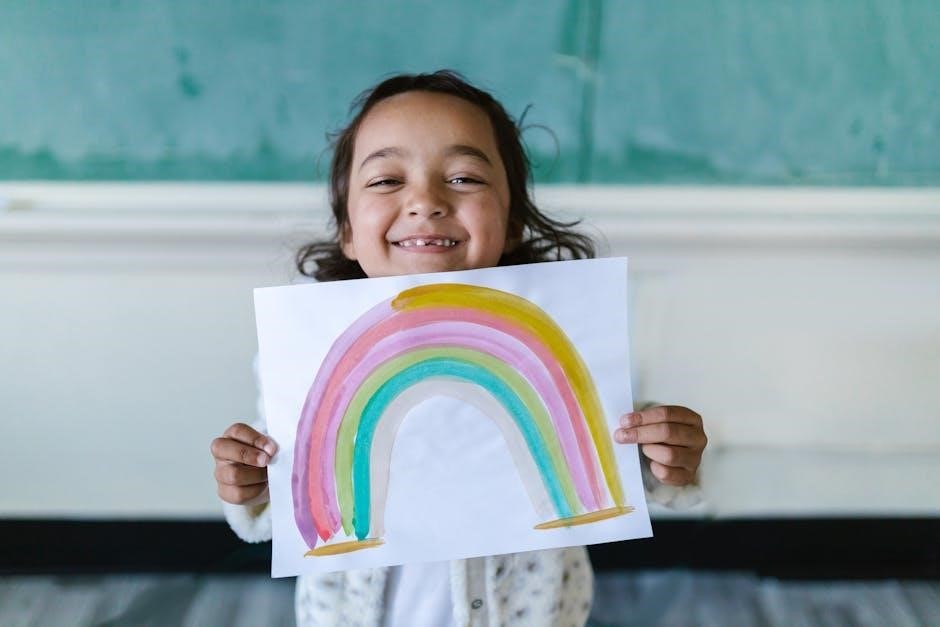
Language and Literacy
Your child should understand simple stories, engage in discussions, and show interest in books. They should begin to recognize that print carries meaning and relate sounds to words.
Vocabulary Development
By kindergarten, children should demonstrate a growing vocabulary, understanding, and using basic words to communicate effectively. They should identify common objects, animals, and people when named and begin to use descriptive language. Encourage your child to expand their vocabulary by reading together, discussing pictures, and explaining word meanings. Engage them in conversations, asking open-ended questions to foster verbal expression. Teach them to use words to describe feelings, needs, and ideas. Exposure to a variety of texts and oral language will help strengthen their understanding. Play word games and sing songs with repetitive phrases to make learning fun. A strong foundation in vocabulary supports future reading and communication skills, so provide opportunities for language exploration and practice regularly.
Recognizing and Naming Letters
Before kindergarten, children should begin to recognize and name uppercase and lowercase letters. This foundational skill helps build literacy abilities. Encourage your child to identify letters in their name and familiar words. Sing the alphabet song regularly and point out letters in their environment, such as street signs or labels. Use flashcards or letter puzzles to make learning interactive. Teach the sounds letters make and how they relate to words. Practice tracing letters with crayons or fingers to develop fine motor skills. Reading books with large, bold text can also expose your child to letter shapes and patterns. Consistent practice and playful activities will help strengthen their letter recognition and prepare them for reading and writing in kindergarten. Celebrate small successes to keep them motivated and excited about learning.
Basic Storytelling and Sequencing
Before kindergarten, children should demonstrate basic storytelling and sequencing skills. Encourage your child to describe events in order, such as “first I did this, then I did that.” Use pictures or objects to help them sequence stories. Reading books together and asking questions like “What happened next?” can improve their narrative abilities. Role-playing activities can also foster imaginative storytelling. Teach your child to use simple transitional words like “before,” “after,” and “then;” Engaging in conversations about their day or experiences helps build their ability to communicate ideas clearly. Practicing with puzzles or games that involve ordering steps can enhance sequencing skills. These activities prepare your child to understand and retell stories, a key skill for early literacy and communication in kindergarten. Consistent practice will help them feel confident in sharing their thoughts and ideas.

Motor Skills
Motor skills development is crucial for kindergarten readiness. Children should demonstrate both fine and gross motor abilities, such as drawing, cutting, and catching a ball, with improved coordination.
Fine Motor Skills: Drawing and Using Utensils
By kindergarten age, children should demonstrate improved fine motor skills, essential for tasks like drawing, cutting, and using utensils. They should be able to grip crayons, markers, or pencils with their thumb and index finger, allowing for controlled movements. Simple drawings may include basic shapes like circles, squares, and lines. Using scissors to cut straight lines and curved lines with accuracy is also expected. Additionally, children should show the ability to dress and undress independently, such as buttoning shirts, zipping jackets, and tying shoelaces. These skills reflect hand-eye coordination and dexterity, crucial for academic tasks like writing and arts and crafts. Practice with playdough, puzzles, and tracing activities can help refine these abilities, ensuring readiness for classroom activities that require precision and control.
Gross Motor Skills: Running and Jumping
By kindergarten age, children typically demonstrate improved gross motor skills, particularly in running and jumping. They should be able to run with more control, showing the ability to start, stop, and change direction smoothly. Jumping skills should include hopping on one foot and jumping forward several steps. Coordination is key, as they should be able to balance while standing on one foot for a few seconds and walk along a straight line without losing balance. These abilities reflect overall physical fitness and readiness for active play. Parents can encourage development by providing safe spaces for outdoor activities, incorporating games that involve running and jumping, and practicing balance exercises at home. Mastery of these skills is essential for participating in physical education and social interactions in kindergarten.
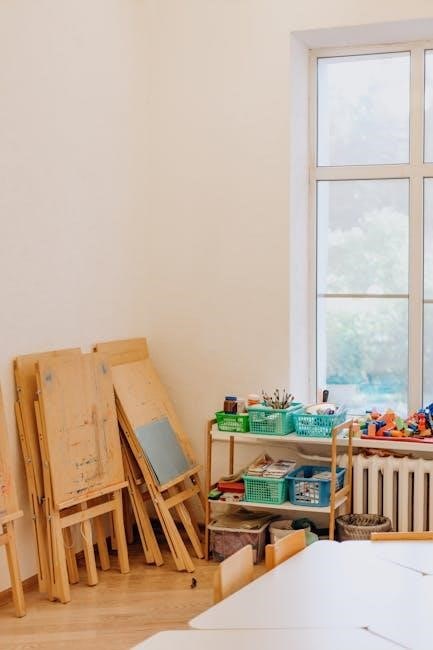
Social and Emotional Readiness
Children entering kindergarten should exhibit independence, self-confidence, and the ability to listen attentively. They should follow directions, show curiosity, and take initiative in learning activities. These skills foster a smooth transition into a structured classroom environment and enhance their ability to engage with peers and teachers effectively. Consistent practice at home and positive reinforcement can significantly strengthen these readiness traits. Parents are encouraged to model and encourage these behaviors daily to ensure their child is well-prepared socially and emotionally for kindergarten. This foundation supports lifelong learning and social success. Early development of these traits can lead to greater confidence and resilience in school. Building these skills now sets the stage for future academic and personal growth.
Listening and Following Directions
One of the key skills your child should master before kindergarten is the ability to listen attentively and follow directions. This includes understanding and completing simple tasks, such as putting away toys or washing hands, when instructed. Children should be able to follow multi-step directions, like “Pick up your book and put it on the table,” without needing frequent reminders. Practicing active listening by maintaining eye contact and repeating instructions can help reinforce this skill. Parents can support this development by giving clear, concise directions and providing positive reinforcement when their child follows through successfully. Encouraging games that involve listening, such as “Simon Says” or scavenger hunts, can also make learning fun and engaging. This skill is crucial for classroom success, as it helps children stay focused and participate effectively in group activities. Consistent practice at home will build their confidence and readiness for school.
Using the Bathroom Independently
Using the bathroom independently is a critical skill your child should master before starting kindergarten. This includes successfully using the toilet, wiping themselves clean, and washing their hands afterward. Children should demonstrate the ability to recognize when they need to use the bathroom and complete the process without assistance. Parents can help by encouraging practice at home, teaching proper hygiene habits, and providing positive reinforcement. It’s also important for children to understand the importance of washing their hands with soap and water for at least 20 seconds. Teaching this skill early helps build self-confidence and reduces reliance on teachers for basic needs. Consistency and patience are key, as some children may need more time to fully grasp this responsibility. By mastering this skill, your child will be better prepared for the independence expected in a kindergarten classroom environment.
Demonstrating Curiosity and Initiative
Demonstrating curiosity and initiative is essential for kindergarten readiness. Children should show interest in their surroundings, ask questions, and explore new objects and activities. They should also be willing to try new things and take the lead in playful or creative tasks. Encouraging curiosity helps children develop a love for learning and builds confidence. Parents can foster this by providing opportunities for exploration, such as puzzles, books, and art supplies. Initiative can be promoted by allowing children to make simple choices, like selecting a game or activity, which teaches decision-making skills. Kindergarten teachers often look for children who are eager to participate and engage independently. By nurturing these traits, parents help their child develop a positive attitude toward learning and a sense of self-motivation that will benefit them in school and beyond.
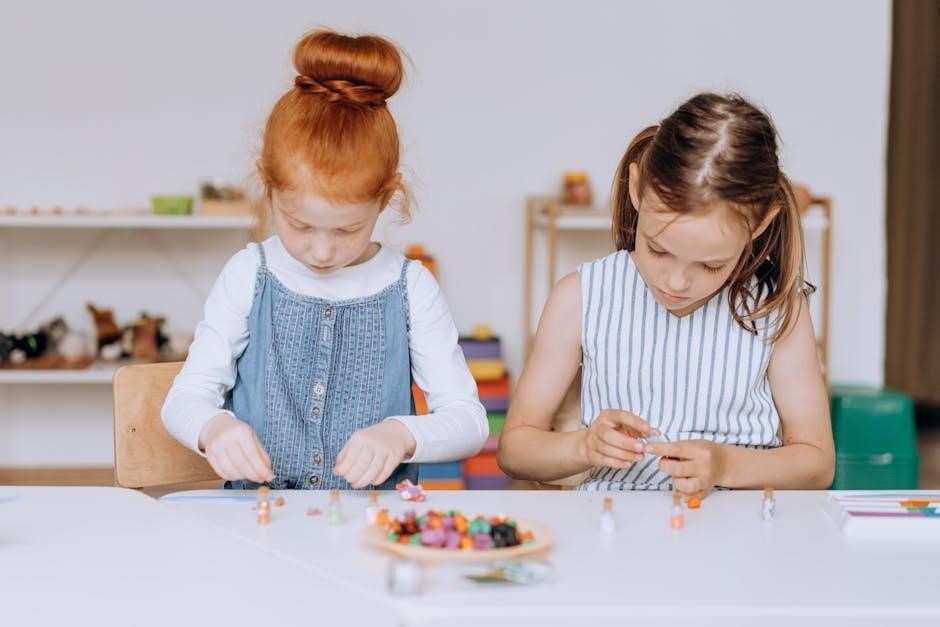
Safety and Hygiene
Safety and hygiene are crucial for kindergarten readiness. Children should understand basic rules, practice self-care routines, and demonstrate awareness of their environment to ensure well-being and independence.
Understanding Basic Safety Rules
Before kindergarten, children should grasp fundamental safety rules to navigate their environment confidently. This includes understanding concepts like stopping at corners, holding hands when walking, and staying within designated play areas. They should also recognize basic traffic signals, such as red meaning “stop” and green meaning “go.” Teaching children to avoid unsafe objects, like hot surfaces or sharp items, is essential. Additionally, they should understand the importance of staying close to caregivers in public spaces and knowing their name, address, and phone number in case of emergencies. Practicing these skills helps children develop a sense of responsibility and awareness, ensuring their safety in various settings. Parents can reinforce these lessons through discussions, role-playing, and positive reinforcement, laying a strong foundation for kindergarten readiness.
Practicing Handwashing and Hygiene
Before starting kindergarten, children should understand the importance of handwashing and basic hygiene practices. They should know to wash their hands with soap and water for at least 20 seconds, especially after using the bathroom, before eating, and after blowing their nose, coughing, or sneezing. Demonstrating how to properly rinse hands and dry them completely is crucial. Additionally, children should learn to cover their mouth and nose with a tissue or elbow when coughing or sneezing and avoid touching their eyes, nose, or mouth to reduce germ spread. Teaching them to disposable tissues properly and wash hands afterward reinforces healthy habits. Parents can make handwashing a routine part of daily life, using songs or timers to help children remember the duration. These hygiene practices are essential for maintaining health and creating a positive environment in kindergarten.
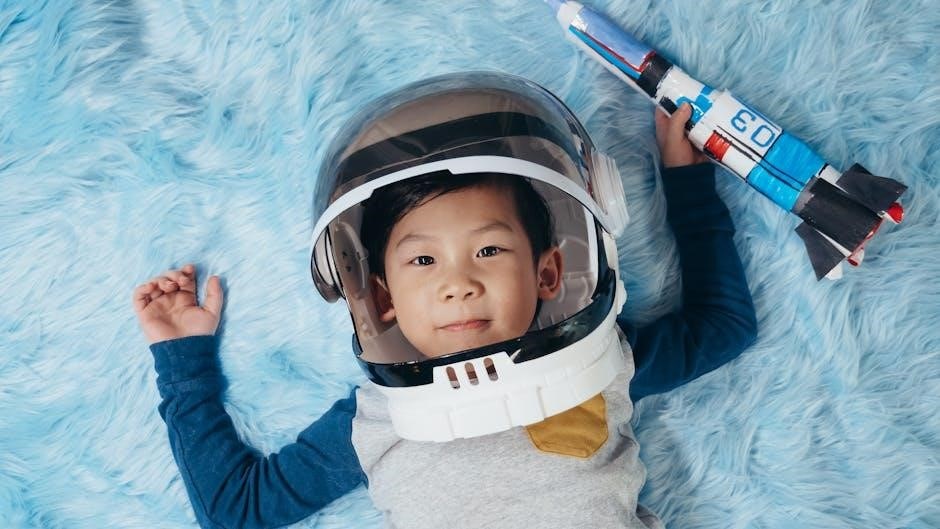
Academic Preparation
Recognizing shapes, numbers, and letters is key. Children should write their name, understand basic time concepts, and grasp simple math like counting and sorting objects.
Recognizing and Writing Their Name
Recognizing and writing their name is a foundational skill for kindergarten. Children should identify their name in print, distinguish uppercase and lowercase letters, and write it legibly. Practice tracing and coloring letters to build fine motor skills. Encourage your child to write their name on papers, cards, or whiteboards. Make it fun by incorporating their name into songs, stories, or art projects. Consistency is key to mastering this skill. Celebrate progress, even if their writing isn’t perfect. By kindergarten, they should confidently write their name independently, understanding its significance in identity and communication. This skill sets the stage for future literacy and academic success. Be patient and provide positive reinforcement to help them feel proud of their accomplishment.
Understanding Basic Concepts of Time
Understanding basic time concepts is essential for kindergarten readiness. Children should grasp simple sequences like “today,” “tomorrow,” and “yesterday.” They should recognize parts of the day, such as morning, afternoon, and evening, and understand how routines fit into these times. Introduce the concept of time using visual aids like calendars or clocks to help them connect activities with time. For example, explain that breakfast happens in the morning and bedtime at night. Engage your child in discussions about their daily schedule to build awareness. Activities like sequencing cards or talking about past and future events can reinforce these skills. This foundational understanding helps children transition smoothly into structured school routines and supports their overall cognitive development. Make learning fun by incorporating time-related games and conversations into daily life.
Introducing simple math concepts helps build a strong foundation for future learning. Your child should be able to count up to 10 or higher and identify numbers in their environment. Understanding basic addition and subtraction, such as combining or separating objects, is also important. Encourage your child to sort objects by shape, color, or size to develop problem-solving skills. Teach them to compare quantities, like “more” or “less,” using everyday items. Simple math games, like counting blocks or rolling dice, make learning engaging. Discussing basic math vocabulary, such as “before,” “after,” and “between,” helps them grasp sequence and order. These skills prepare your child to tackle more complex math ideas in kindergarten and foster a love for learning. Make math part of daily routines, like measuring ingredients while baking, to create meaningful connections.
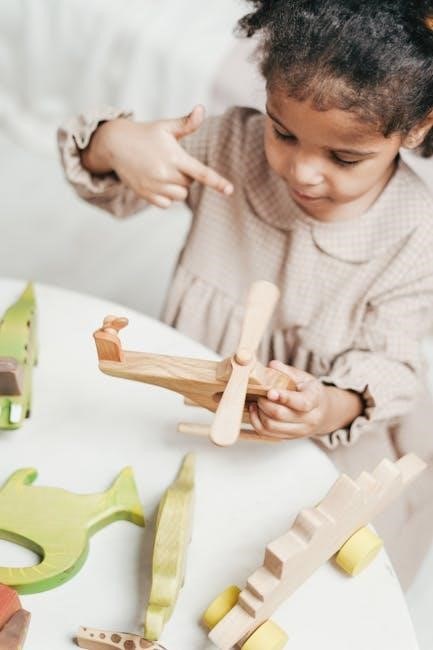
Additional Tips for Parents
Support your child by creating a nurturing environment, staying consistent, and communicating openly. Provide opportunities for social interaction and celebrate their progress to build confidence and curiosity.
Creating a Supportive Learning Environment
Creating a supportive learning environment at home is essential for fostering your child’s readiness for kindergarten. Designate a quiet, organized space for learning and play, filled with age-appropriate books, puzzles, and art supplies. Encourage curiosity by asking open-ended questions and engaging in conversations about their interests. Establish a daily routine that includes time for reading, writing, and imaginative play; Incorporate activities that promote independence, such as letting your child dress themselves or complete simple tasks; Celebrate their achievements, no matter how small, to build confidence and a love for learning. By providing a nurturing and structured environment, you help your child develop the skills and mindset needed for a successful transition to kindergarten.
Engaging in Activities That Promote Readiness
Engaging your child in activities that promote readiness is a fun and effective way to prepare them for kindergarten. Reading aloud daily helps expand vocabulary and fosters a love for storytelling. Simple puzzles and matching games enhance problem-solving skills and hand-eye coordination. Arts and crafts projects, like drawing or coloring, improve fine motor skills and creativity. Singing songs and reciting nursery rhymes introduce rhythm and phonological awareness. Incorporating pretend play encourages social skills and imagination. Science and nature activities, such as observing plants or mixing materials, spark curiosity and basic scientific thinking. These activities not only build essential skills but also create meaningful bonding moments. Consistency and variety in these activities ensure a well-rounded foundation for your child’s academic and personal growth.
Staying Consistent and Patient
Staying consistent and patient is crucial when preparing your child for kindergarten. Establishing routines helps your child feel secure and develop self-discipline. Consistency in daily activities, such as mealtimes, play, and bedtime, provides a sense of structure. Patience is key when teaching new skills, as it allows your child to learn at their own pace. Celebrate small achievements to build confidence and encourage effort. Avoid comparing your child to others, as every child develops differently. By remaining calm and supportive, you create a nurturing environment that fosters growth. Consistency and patience not only strengthen your bond with your child but also help them feel prepared and resilient for the challenges ahead. This approach ensures a smooth transition to kindergarten and sets the foundation for lifelong learning.